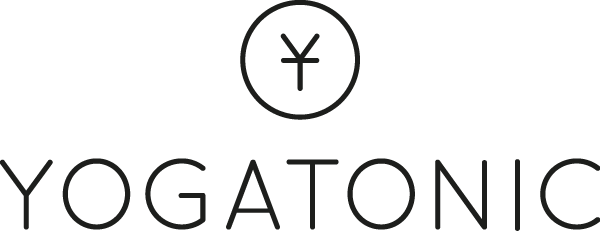SUPERFOOD Kolumne: Spargel*SUPERFOOD column: Asparagus*
Bald geht es los mit der wunderbaren Spargelzeit: von Mitte/ Ende April bis 24. Juni gibt es das köstliche Gemüse, das uns Ballaststoffe, Folate (die natürliche und aktive Form der Folsäure), Kalium, ein äußerst günstiges Calcium-Magnesium-Verhältnis, viele Vitamine und ein umfangreiches Sortiment an bioaktiven Pflanzenstoffen liefert.
Insbesondere der hohe Kaliumgehalt gleichzeitig mit einem niedrigen Natriumvorkommen machen aus dem Spargel ein reinigendes und harntreibendes Lebensmittel, so dass er exzellent für Menschen mit Problemen beim Pinkeln geeignet ist. Seine harntreibenden Eigenschaften scheinen besonders dann zur Geltung zu kommen, wenn der Spargel in Form von Saft bzw. seine Kochbrühe getrunken wird.
Im Spargel stecken auch viele Vitamine. Vitamin A zum Beispiel ( 0.03 mg / 100 g) unterstützt unsere Sehfähigkeit und inaktiviert Sauerstoffradikale. Vitamin E (2,1 mg / 100 g) hat einen starken Einfluss auf unser Nervensystem und wirkt gegen Radikale bildende Schwermetalle. Vitamin K (0,04 mg / 100 g) ist wichtig fürs Blut und schützt den Organismus vor Pilzkrankheiten.
Der glykämische Index ist äußerst niedrig, was bedeutet, dass der Genuss von Spargel den Blutzuckerspiegel kaum beeindruckt.
Die traditionelle indische Medizin ist der Meinung, Spargel könne neben einer allgemeinen Steigerung der Vitalität besonders in Liebesdingen aufmunternd wirken. So würde das stangenförmige Gemüse die Durchblutung des Urogenitaltraktes erhöhen. Vermutlich ist es jedoch insbesondere der hohe Vitamin-E-Gehalt im Spargel, der dessen anfeuernde Wirkung erklärt. Vitamin E aktiviert nämlich direkt die Produktion und Ausschüttung von Sexualhormonen.
Es lässt sich nicht eindeutig sagen, ob nun der grüne oder der weiße Spargel der gesündere sei. Zwar hängen die Mengen verschiedener Mineralien und Vitamine davon ab, ob der Spargel Licht sieht, bevor er geerntet wird oder nicht, aber die Unterschiede sind nicht so erheblich, als dass hier eine Empfehlung gegeben werden könnte. Gesund sind jedenfalls beide Spargelfarben.
Leider ist Spargel eines der wenigen Gemüsesorten, die nicht basisch ist. Jedoch enthält Spargel keine schlechten Säurebilder.
Als Kind habe ich ihn gar nicht gemocht, doch jetzt freue ich mich richtig auf die SPARGELZEIT.
*Soon the marvellous season of asparagus will be upon us. Starting in the middle or toward the end of April until June 24th. the delicious vegetable is to be had, which offers us fibres, folates (the natural and active form of folic acid), potassium, a very favourable ratio of potassium and magnesium, many vitamins and a wide range of bioactive phytochemicals.
Particularly the high amount of potassium along with a low amount of sodium make asparagus a purifying and diuretic victual which makes it ideal for people who face problems peeing. The diuretic qualities seem to particularly show to advantage when the asparagus is consumed in the form of juice or its broth (when cooked) respectively.
Asparagus also contains many vitamins, e. g. vitamin A (0,03mg / 100g) boosts our ability to see and deactivates oxygen radicals. Vitamin E (2,1 mg / 100g) has a strong influence on our nervous system and works against radical forming heavy metals. Vitamin K (0,04mg / 100g) is important for our blood and protects our organism from fungus-infections.
The glycaemic index of asparagus is exceptionally low which means that eating it will hardly influence your blood sugar level.
In traditional Indian medicine it is believed, asparagus will have invigorating effects not only on your overall vitality but also on your love life. Allegedly, the bar-shaped vegetable will enhance the blood-circulation in your genito-urinary tract. But the invigorating effect of asparagus is probably due to its high content of vitamin E since it activates directly the production and release of sexual hormones.
It cannot be decided unambiguously if white or green asparagus is more healthy. The amounts of different minerals and vitamins depends on the fact if the asparagus will see the light of day before it is harvested but the differences aren't so substantial that you could make a recommendation accordingly. Both colours are healthy, though.
Unfortunately, asparagus is one of the few kinds of vegetables which isn't alkaline. Still, asparagus doesn't contain any harmful acidifiers. As a child I didn't like it at all but these days I am really looking forward to the ASPARAGUS-TIME. *

